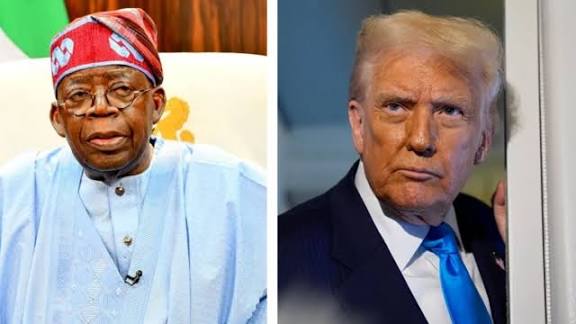Joy Yesufu, Abuja

The United States military has reportedly prepared contingency plans for possible airstrikes in Nigeria following an order by President Donald Trump directing the Pentagon to “prepare to intervene” in response to alleged attacks on Christians.
According to a report by The New York Times on Wednesday, the U.S. Africa Command (AFRICOM) has presented multiple operational scenarios to the Pentagon, ranging from limited intelligence-sharing missions to full-scale air operations.
The plans, described by U.S. defence officials as “heavy,” “medium,” and “light” options, detail varying levels of military engagement. The “heavy option” reportedly involves deploying an aircraft carrier strike group to the Gulf of Guinea, supported by fighter jets or long-range bombers to strike militant strongholds in northern Nigeria.
The “medium option” proposes using MQ-9 Reaper and MQ-1 Predator drones for targeted strikes on insurgent camps, while the “light option” focuses on intelligence sharing and logistical coordination with Nigerian forces.
However, Pentagon sources cited in the report acknowledged that limited air operations would not end Nigeria’s prolonged insurgency without a broader campaign, a strategy Washington is not currently considering.
Trump had earlier warned that he might deploy U.S. forces to Nigeria if what he called “a genocide against Christians” continued. The Nigerian government swiftly rejected the claim, describing it as “false and misleading.”
Information Minister Mohammed Idris reiterated on Wednesday that Nigeria faces terrorism, not religious persecution, stressing that “both Christians and Muslims have suffered from extremist violence.”
He said the government had neutralised over 13,500 militants and rescued more than 11,000 hostages since 2023.
“Nigeria remains open to collaboration with the United States on counterterrorism, but such cooperation must be based on mutual respect for sovereignty,” Idris stated.
In a related development, China on Tuesday expressed its support for Nigeria, declaring its opposition to what it termed “foreign interference under the guise of religion or human rights.”
Chinese Foreign Ministry spokesperson Mao Ning said Beijing “firmly opposes any country using religion as an excuse to threaten other nations with sanctions or force.”
Trump, however, doubles down on his stance later on Wednesday, stating that Christianity faces an “existential threat” in Nigeria and that the U.S. “will not stand by while such atrocities continue.”
The developments have heightened diplomatic tension between Abuja and Washington and rekindled debate in the U.S. over the extent of military intervention in foreign religious conflicts.
